Do we really need adjustable stems? Fancy cockpits, a Colombian gravel bike and a lock to 'stand up to angle grinders'
We check out new handlebars from Fara and Vision, gravel shoes from Fizik, a sturdy lock from Abus and steel gravel bike from Scarab Cycles
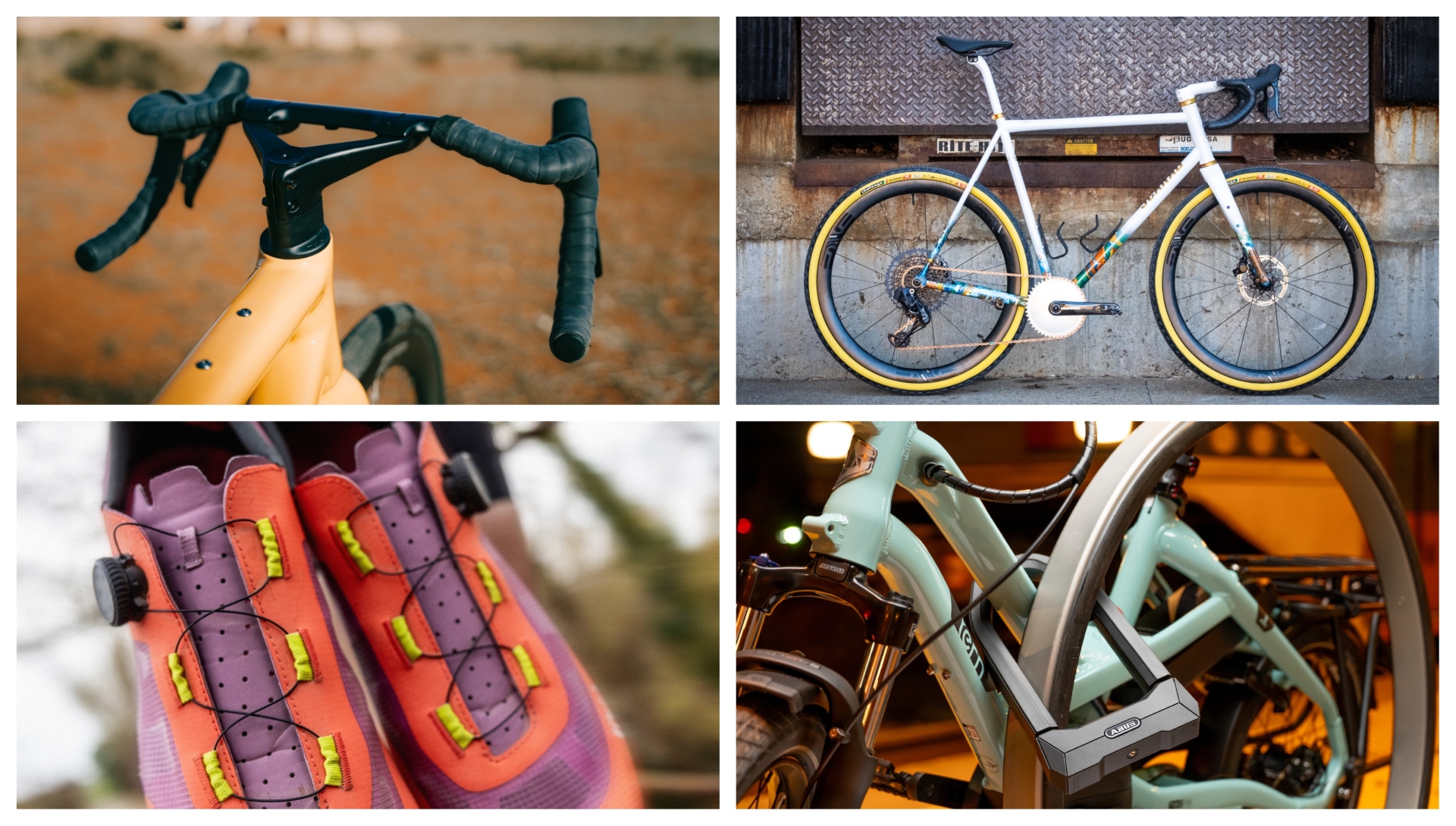
The beauty of cycling tech is that it remains so varied. Despite the seemingly never ending desire for 'faster and lighter', there's still plenty of counterbalance.
Several of cycling's more interesting releases are a case in point. While we have the 'fast and light' covered in the shape of Vision's latest integrated aero cockpit we also another pair of bars that are adjustable and aimed at long-distance adventurers.
And there's more, including a stunning looking gravel bike from Colombia, some gravel race shoes from Fizik and a bike lock that hopes to strike fear into cordless angle grinders.
Scarab Cycles Paramo gravel bike
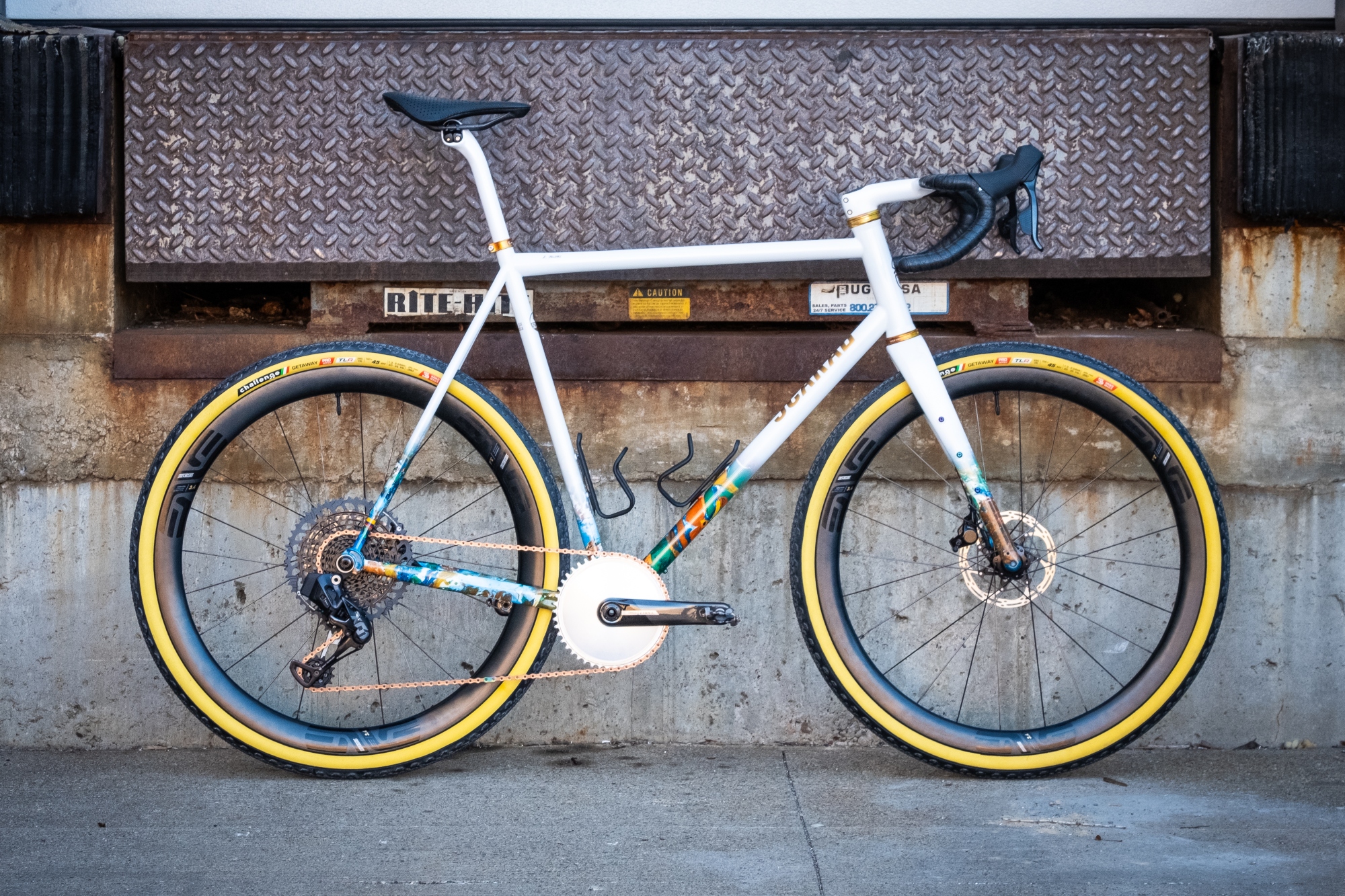
The Paramo Integrated gravel bike piques interest for a few reasons.
It’s a great looking machine with an in-house marble paint job that’s a real head turner. It’s built using the Enve IN-Route system and an all-new Wolf Tooth integrated headset - hence the bike’s name. And last, but not least, Scarab Cycles builds its frames in the Colombian Andes to reflect the country, both in its uncompromising terrain - only around 10% of the roads are paved - and its colorful culture.
In short, it’s not your run-of-the-mill gravel bike and is priced accordingly, with the frameset starting at $3,600.
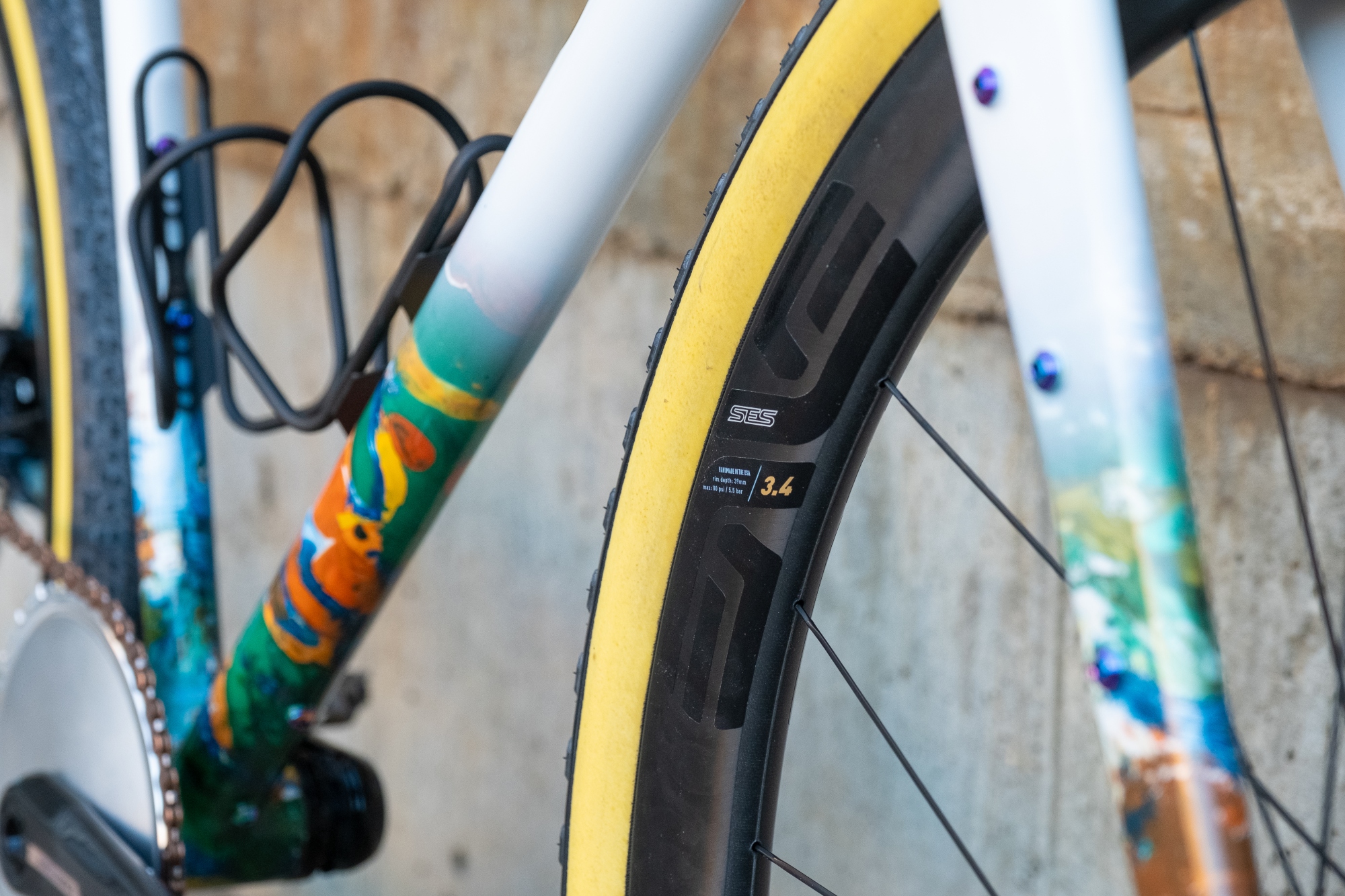
Sitting alongside the standard Paramo and the Paramo Ultra, the Integrated offering is designed to be as streamlined as possible yet still a match for rugged terrain. Its frame is made from steel and has clearance for 48mm tires. To achieve its clean looks it uses the aforementioned Enve cabling system as well as its carbon Gravel In-Route fork, alongside Wolf Tooth’s new integrated headset for 44mm head tubes.
The latest race content, interviews, features, reviews and expert buying guides, direct to your inbox!
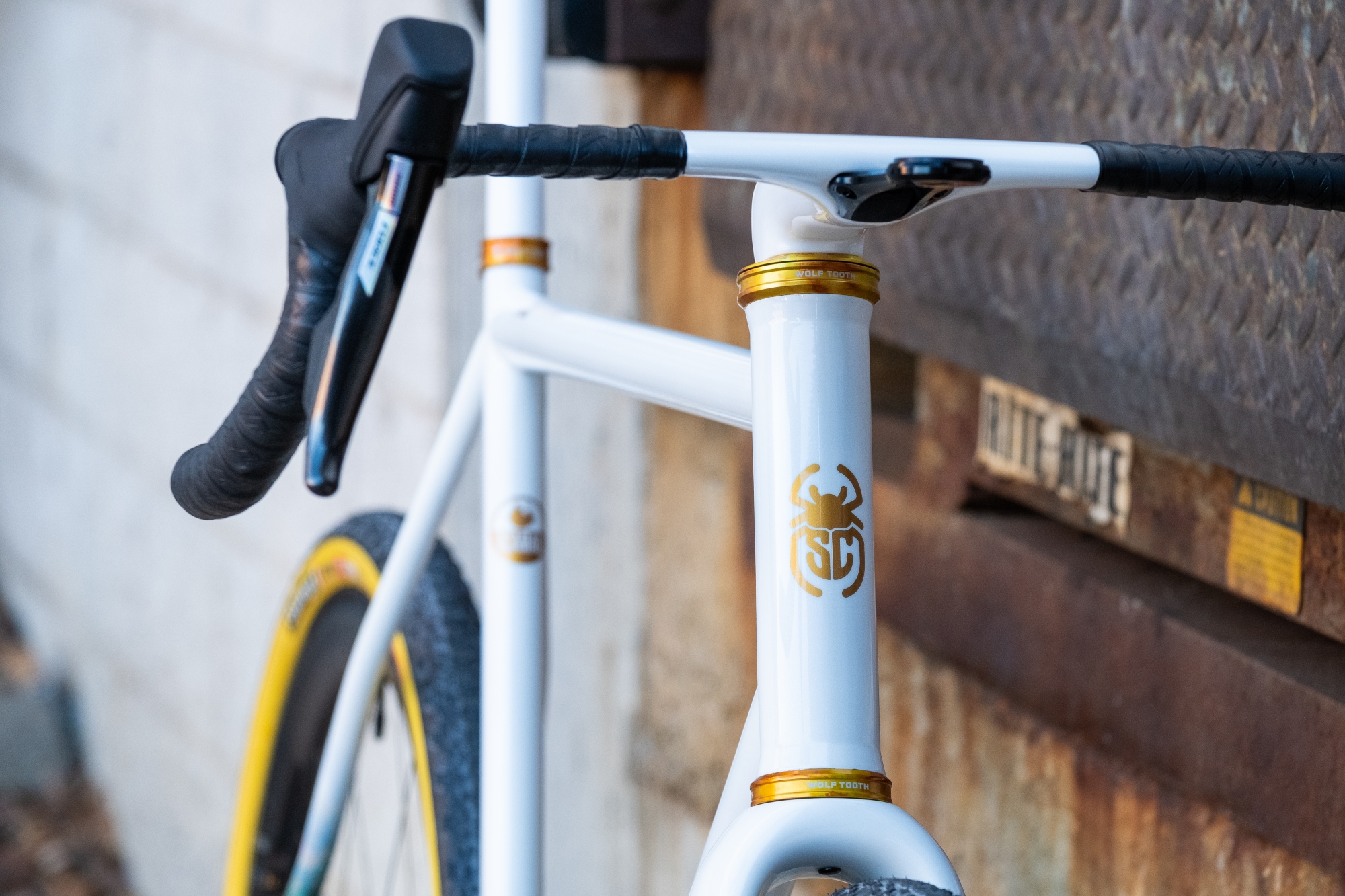
Machined in Minnesota using aircraft-grade 6061 aluminium, the headset is made specifically Enve’s In-Route system that keeps cables and hoses hidden. According to Wolf Tooth the stack height is low - just 15.65mm - to further aid the “smooth transition from cockpit to headset to frame”. Other details include a triple-seal system to best protect the Enduro bearings.
Vision Metron 5D Evo handlebars
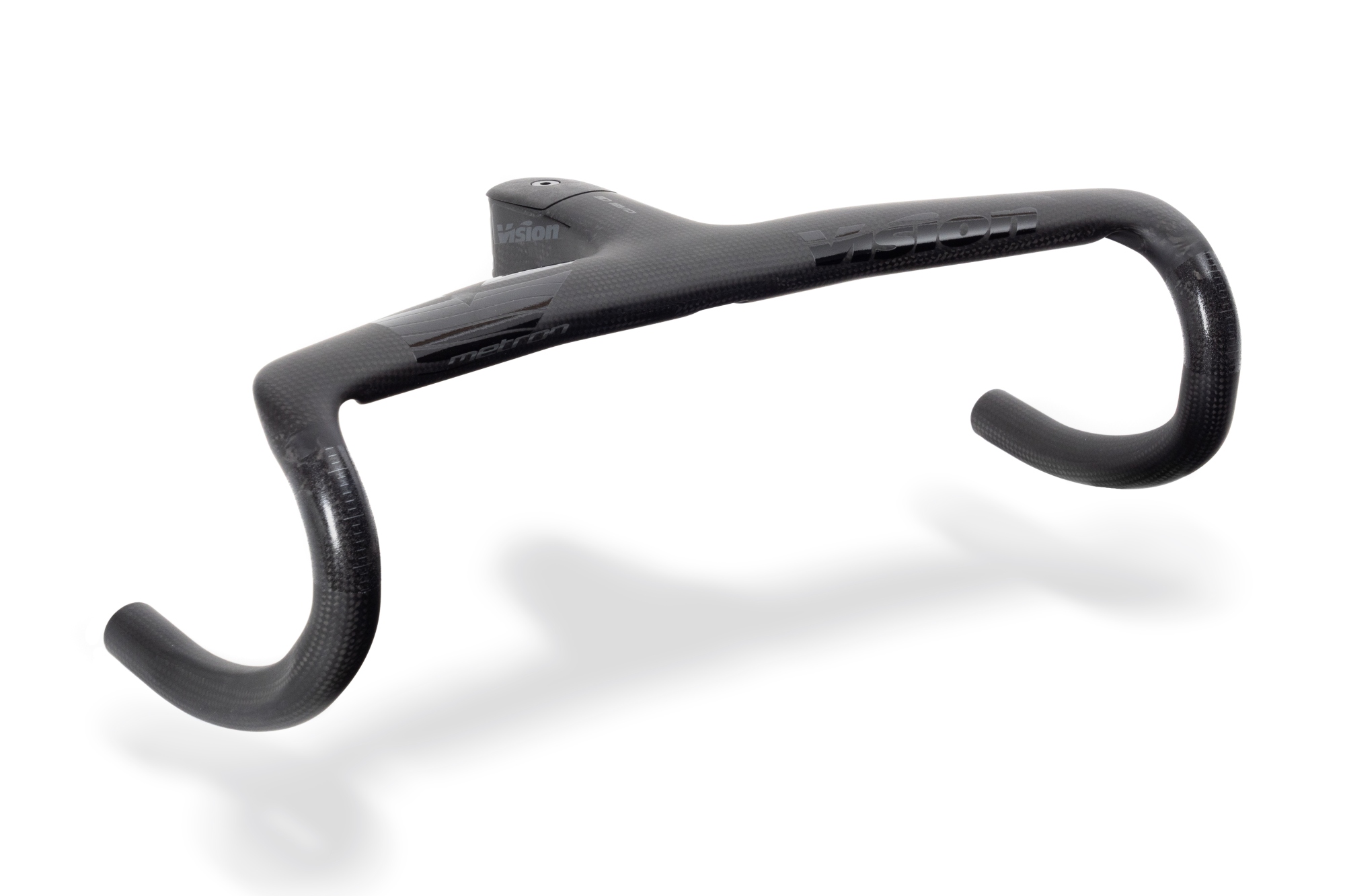
Since its launch in 2019, the integrated 5D Evo cockpit has been a regular fixture on WorldTour podiums. Mohoric at Milan-San Remo in ‘22, Roglic at the Vuelta in ‘20 and ‘21 and the Giro in ‘23 and Vingegaard at last year’s the TdF in ‘23 and this year’s Tirreno were all steered to victory by the handlebars. In fact, according to the brand the Evo is responsible for some 100+ victories and over 50 Grand Tour wins.

The latest incarnation, which will likely get plenty of airtime thanks to them continuing to be used by the Visma team, has a number of noteworthy tweaks. While the 10 degree forward angle and integrated cabling remain from the previous model, Vision says the weight has dropped, while the stiffness and aerodynamics has increased. In terms of numbers, the claimed weight for the cockpit is now just 320g, while the stack height has been lowered by 1.5cm to 40cm.
Perhaps the most interesting development is the choice of two thicknesses, with the bars now offered in L or XL. Despite their racing pedigree, the idea apparently is to make the bars accessible to amateur riders too, with the thicker option adjusting the grip depth. Compatibility has also been expanded, with 3D printed cone spacers available for a number of bikes, including the Specialized Tarmac SL8, Trek’s Madone and Emonda, the Pinarello Dogma F and F12 and Cervelo’s Caledonia, Soloist and R5.
Fizik Vento Proxy gravel shoe
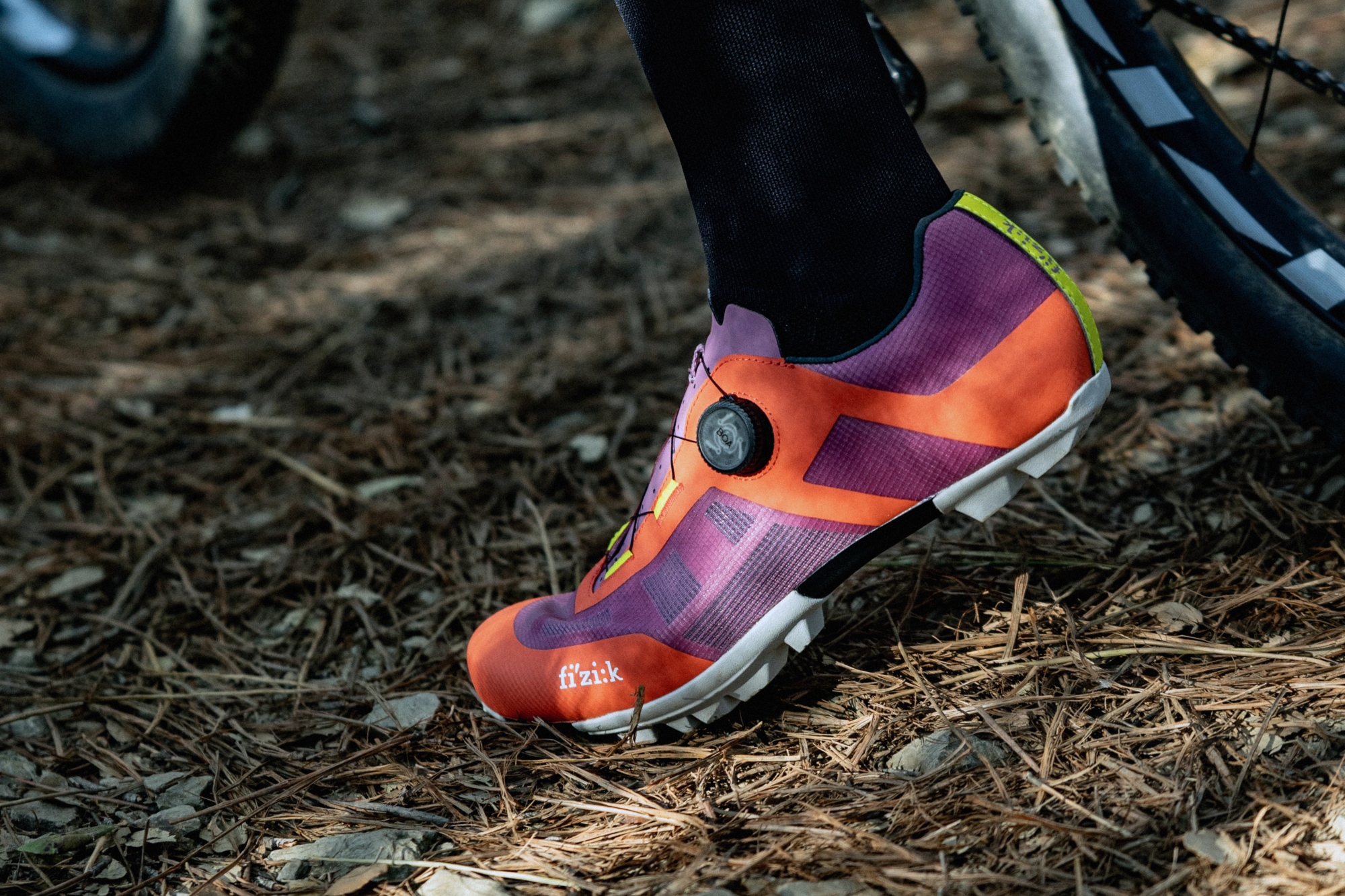
Fizik has expanded its off-road footwear range, with the release of the Vento Proxy. Designed for off-road racing, be it gravel, cyclocross or XC, it’s created to be light, stiff and durable.
A quick look at the Proxy’s specifications tells us that it’s designed to fit in between the existing Vento Ferox Carbon and Terra Atlas models. The Ferox is again race-ready but a tad lighter and stiffer, while the Terra Atlas is positioned for recreational gravel riding, with a more forgiving sole and a focus on comfort.
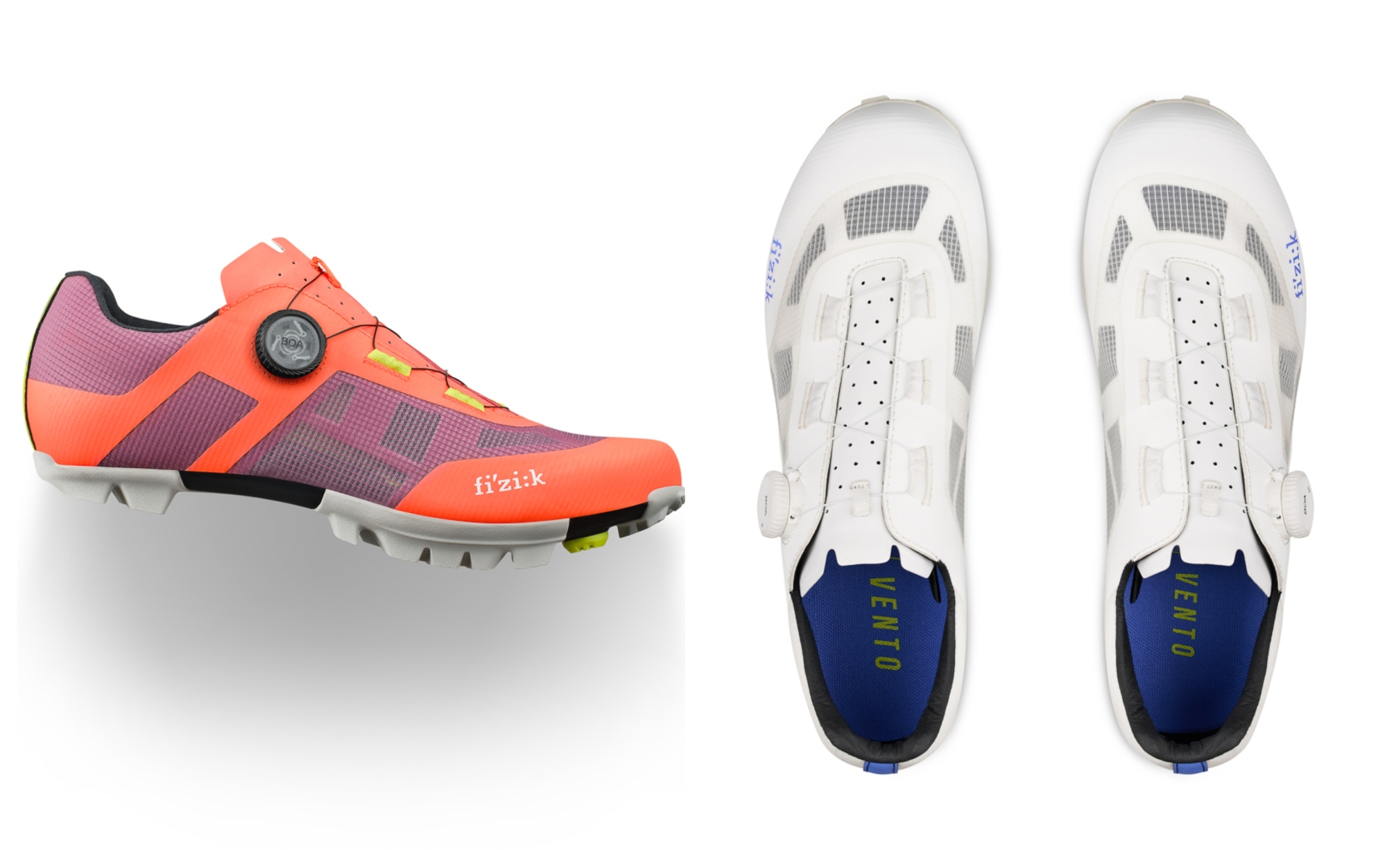
The Vento Proxy uses a X3 fiber composite and rubber outsole that’s said to deliver efficient power transfer alongside better grip, on both the pedals and on the ground. The stiffness rating is 8 compared to the 10 of the Vento Ferox Carbon and the 5 given to the nylon sole used on the Terra Atlas model. As for weight, the Vento Proxy again finds itself sandwiched between the other two shoes; its claimed weight for a single shoe is 326g, with the Ferox weighing 297g and the Atlas 355g.
Like the Ferox it uses a single, bi-directional Li2 BOA dial but eschews the velcro strap. The PU laminated mesh upper is said to be both tear-resistant and breathable, while at the same time helping to keep the weight of the shoe down, and the comfort levels up.
Given that it’s around $50 or £70 cheaper ($249.99/£229.99) than the Ferox it will be interesting to see if the differences between the two are noticeable enough to warrant the extra cash.
Fara Modular Cockpit
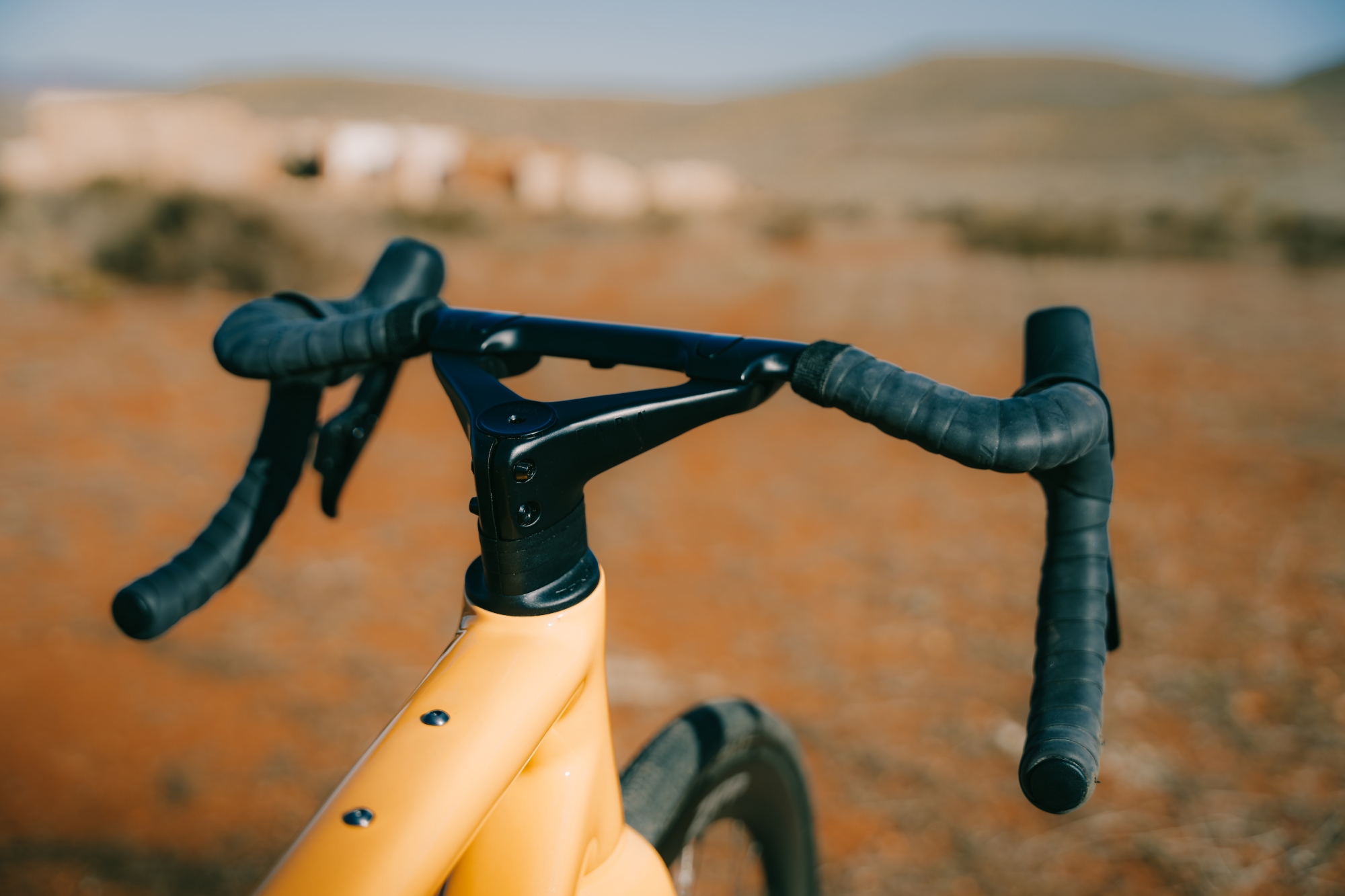
While integrated handlebars and stems have been around for a while, the adjustable cockpit is relatively new. While Canyon focussed its attention on variable widths with the CP0018, Fara are offering an adjustable reach with its new Modular Cockpit.
Designed primarily for long-distance adventure riding, the focus is on comfort. The adjustable stem is said to provide 10mm of fore-aft difference, made possible by the hidden attachment points. Fara says this serves up “positional options on the move”. While it might perhaps seem unnecessary for many of us, those covering huge distances in ultra races and multi-day bikepacking trips might beg to differ. The carbon construction is also said to deliver a “high level of flexion” for better shock absorption over rough terrain.
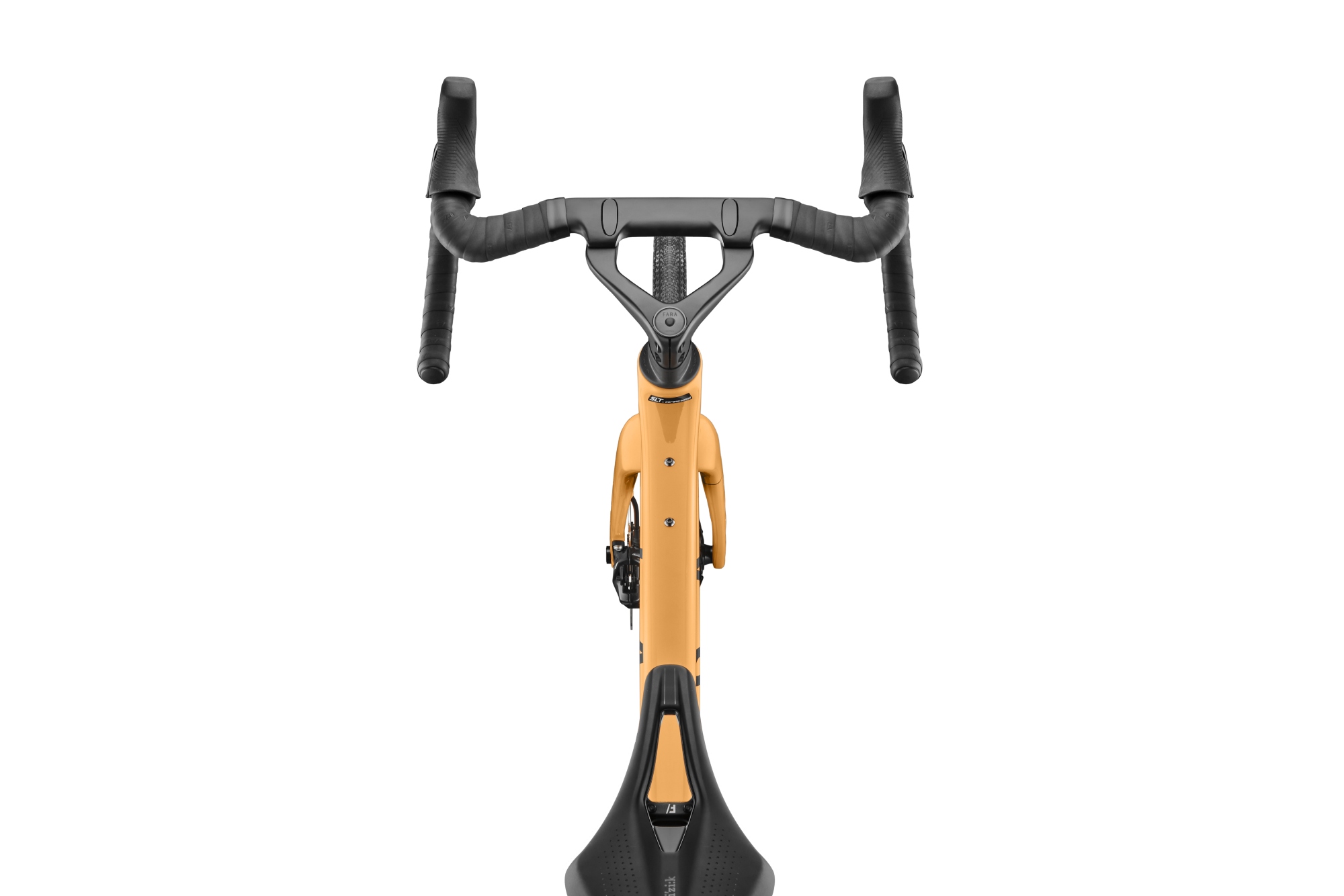
Ergonomics play their part too. Fara says the design of the bars allows for multiple hand positions, both on the tops, which features a backsweep, and using the 8-degree flare on the drops. There’s even mounting points for a set of aero bars that can be bought separately. The shape, which brings to mind the bars found on Cervelo’s S5, also has further mounting point for a cycling computers and lights.
The bars are available in four widths - 37cm, 40cm, 42cm and 44cm - and three stem lengths - 80-90mm, 100-110mm and 120-130mm. Internal cable routing is possible by pairing the cockpit with Token’s A-Box or S-Box headset, which comes as standard on all Fara bikes. As for the price, the bars will retail at £667.
ABUS Granit Super Extreme 2500

What separates the best bike locks from those best avoided? According to Abus, it’s being able to stand up to cordless angle grinders, what the German brand describes as “the professional thief's new go-to tool for stealing bikes”. Enter the Granit Super Extreme 2500.
As the name suggests, Abus’ latest U-lock is designed for “ultimate protection”. To try and keep the angle grinder at bay it has covered the 27mm square double-locking parabolic steel shackle and lock body in a Wolfram Carbide coating. It’s a compound made from wolframite (the main source of tungsten) and carbon known for its durability and resistance. It has a melting point of 2,870 °C should the thief also come armed with a blow torch.
Further deterrents are found in the shape of the Xplus cylinder and Power Cell technology. The former is designed to offer high protection against picking of the lock, while the latter does the same against ‘brute force impacts’. Given it’s $299.99 retail price it’s likely aimed at electric bike users as well as those who like to lock their ‘sunday best’ race bike up in the shed.
Luke Friend has worked as a writer, editor and copywriter for over twenty five years. Across books, magazines and websites, he's covered a broad range of topics for a range of clients including Major League Baseball, Golf Digest, the National Trust and the NHS. He has an MA in Professional Writing from Falmouth University and is a qualified bicycle mechanic. He has been a cycling enthusiast from an early age, partly due to watching the Tour de France on TV. He's a keen follower of bike racing to this day as well as a regular road and gravel rider.